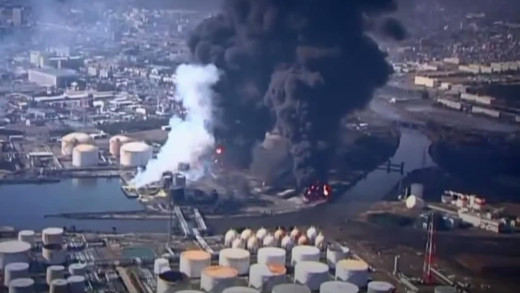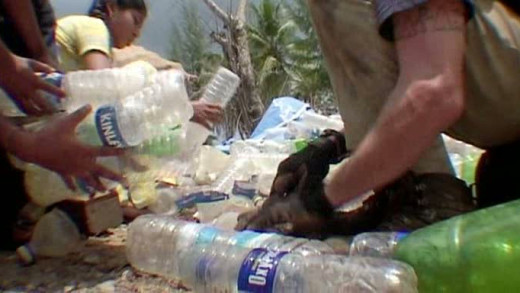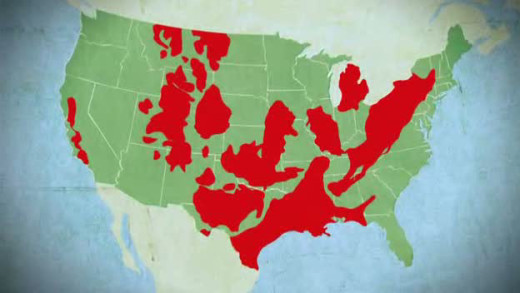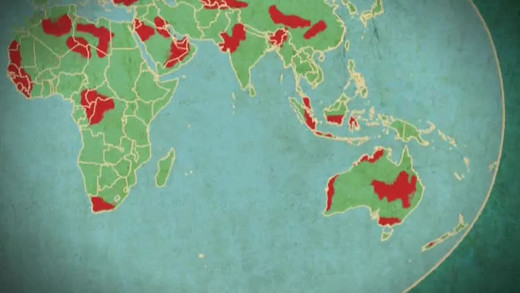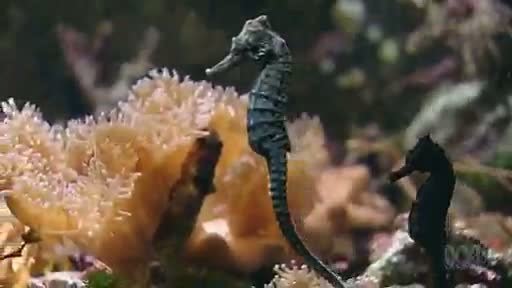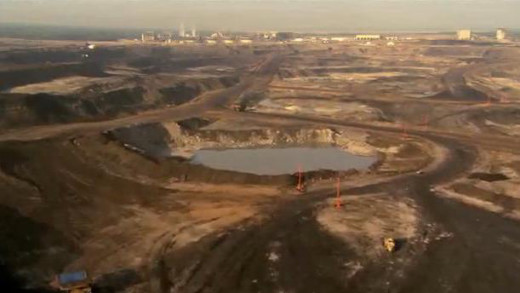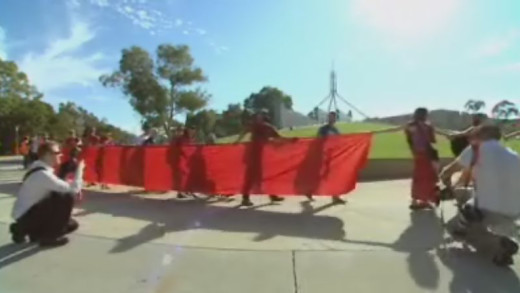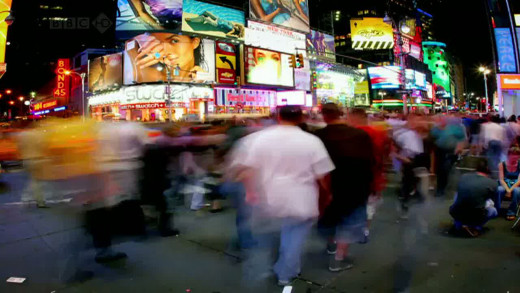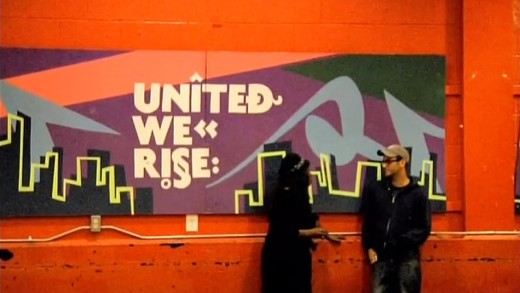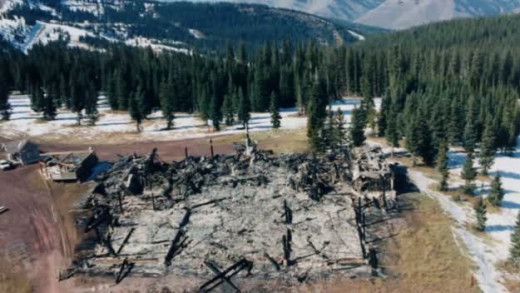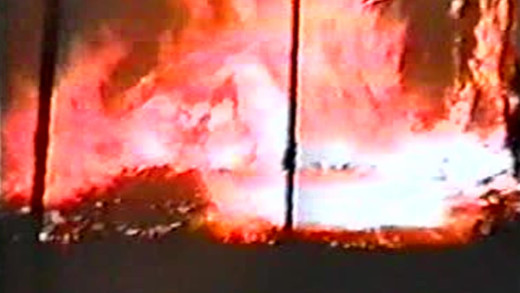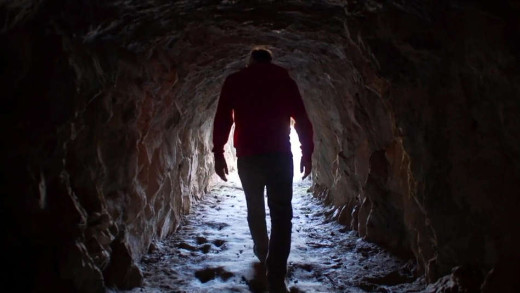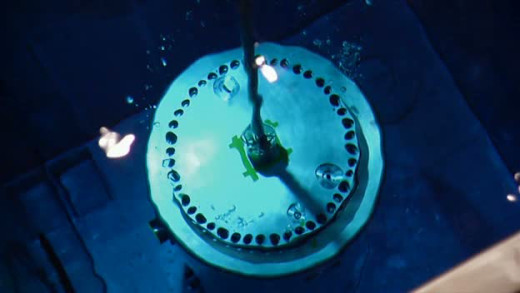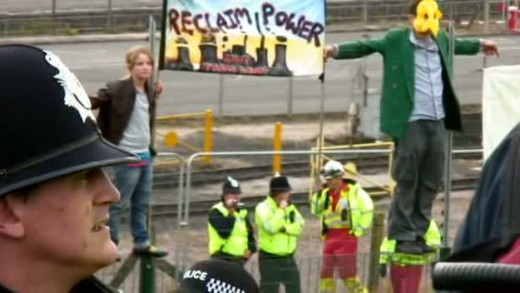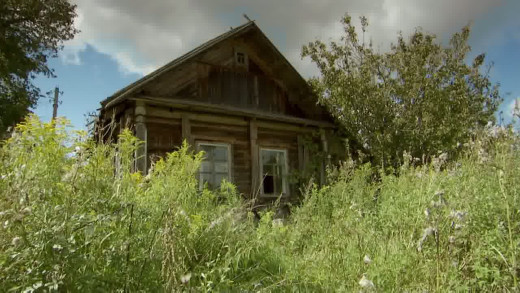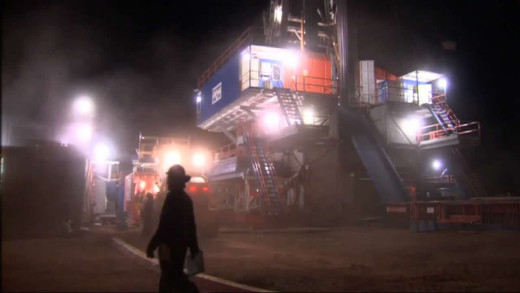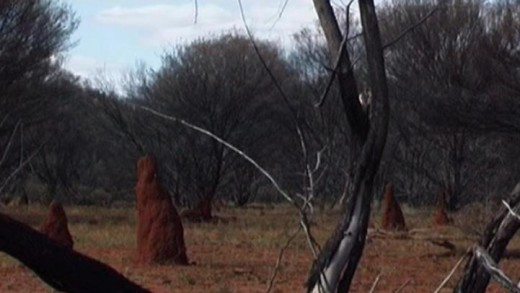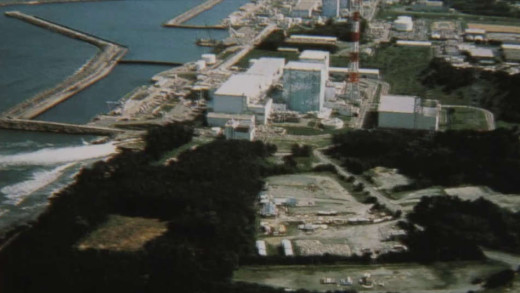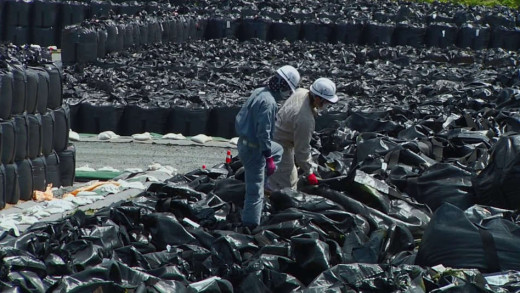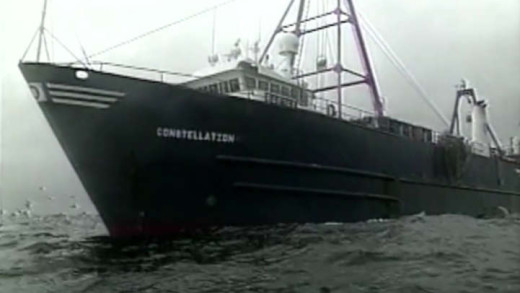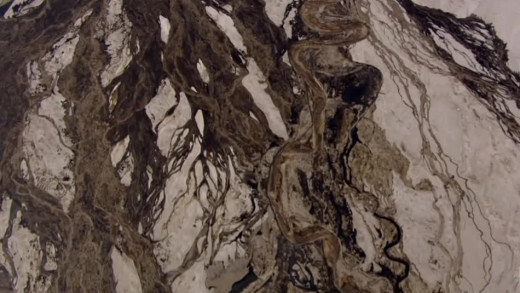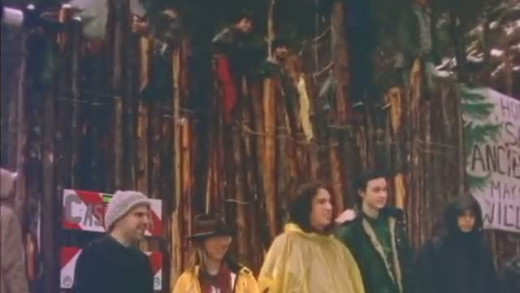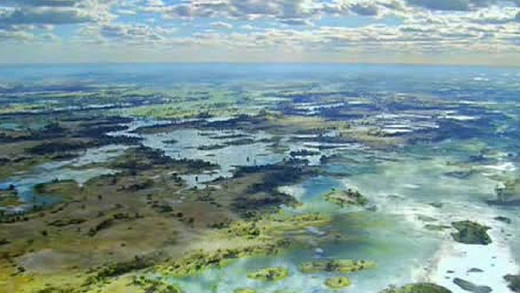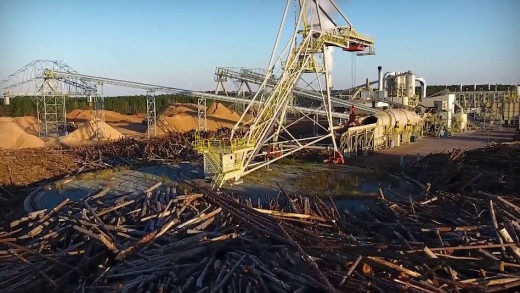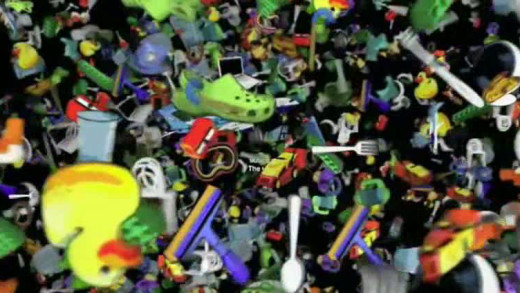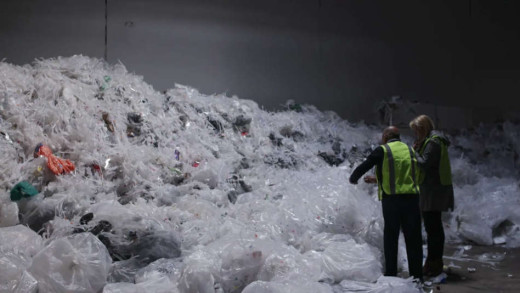On 11th March 2011, a 9.0 magnitude earthquake unleashed a devastating tsunami destroying whole Japanese towns and villages. It also hit the Fukushima Daiichi nuclear power plant, damaging four reactors and leaking radiation. As the toxic fallout affects the health, safety and livelihood of millions, Japan faces its biggest-ever backlash towards nuclear power. Anti-nuclear activism in Japan has been on the rise along with calls for changes in energy policies generally. And from being the world's third-highest user of nuclear energy, the country now has only five of its 54 reactors working, but lengthened the time-span of its oldest reactors by 20 years. What's going on?
Imagine a home that heats itself, that provides its own water, electricity and spaces to grow food. One that needs no expensive technology, that recycles its own waste and that can be built anywhere, by anyone, out of garbage. Literally. Thirty years ago, architect Michael Reynolds imagined such a home and then set out to build. Today, there are strong communities of people living in these homes throughout the world, but all doesn't come without the constant resistance and hindrance from government and big business which are rightly threatened...
America's largest domestic natural gas drilling boom is in full swing and the Halliburton corporation claims it has refined a technique called 'hydraulic fracturing' that extracts natural gas in a "safe and environmentally friendly way". But upon examination, film-maker Josh Fox uncovers a trail of secrets, lies and first-hand evidence of intense water contamination and devastating environmental destruction...
Gasland Part II follows on three years later, to continue documenting how the stakes have been raised on all sides in one of the most devastating environmental issues rapidly spreading the globe. This sequel further enriches the argument that the gas industry's portrayal of natural gas as a clean and safe alternative to oil is a lie, where in fact fracked wells inevitably leak over time, and vent exuberantly more potent greenhouse gasses such as methane in cumulative effect, not to mention the continued string of cases of severe water contamination across the United States and even cases as far away as Australia. Gasland Part II follows deeper into these happenings, revealing yet more of an entrenched corporate collusion in the pursuit of exploiting dwindling 'natural resources'...
The Great Barrier Reef is one of the great natural wonders of the world. But now the area faces threats not only by changes to the climate, but by direct assaults from industry going to any lengths to extract Coal Seam Gas. This report travels to Queensland to show how at least six major port developments -- either being planned or currently underway -- are directly putting The Great Barrier Reef in jeopardy...
Canada is now the biggest supplier of oil to the United States, thanks to the Alberta tar sands—a controversial billion-dollar project to extract crude oil from bitumen sands, using a very toxic process that has generated international cause for concern. Four barrels of glacier-fed spring water are used to process each barrel of oil, along with vast amounts of electricity. The waste water is dumped, filled with carcinogens and other chemicals, into leaky tailings ponds so huge that the piles can be seen from space. Downstream, people and communities are already paying the price with contaminated water supplies and clusters of rare cancers. Evidence mounts for industry and government cover-ups. In a time when wars are fought over dwindling oil and a crisis looms over access to fresh water, which will we allow to turn out to be more precious to us?
On the eve of the Australian government's release of its controversial climate change legislation, reporter Liz Jackson investigates the relentless lobbying campaign conducted over the past 12 months by both environmentalists and industry. Who has won out? Will Australia have an emissions trading scheme, as the government has promised, by 2010?
Is the world heading for a population crisis? Since 1950, the human population has more than doubled. What is the effect of this rapid growth on the environment? While much of the projected growth in human population is likely to come from the so-called "developing world," it is the lifestyle enjoyed by the West that has the most impact--in the UK consumers use as much as two and a half times their fair share of Earth's resources. This film examines whether it is the duty of individuals to commit not only to smaller families, but to change the way they live for the sake of humanity and planet Earth.
How to Let Go of the World and Love All the Things Climate Can't Change travels the globe, from New York City to the Marshall Islands and China, to meet with people who are committed to reversing the tide of global warming. The film examines the intricately woven forces that threaten the stability of the climate and the lives of the world's inhabitants.
For years, the Earth Liberation Front--autonomous individuals operating in separate anonymous cells without any central leadership--carried out spectacular direct-actions against businesses that destroy the environment. Some of the targets were logging corporations, SUV dealerships, ranger stations, a slaughterhouse and a multi-million dollar ski-lodge at Vail, Colorado that was expanding into national forest. As authorities were not able to crack the case and disbanded many years later, the FBI got lucky when they were led to a former activist who agreed to co-operate with them and become an informant. If A Tree Falls provokes hard questions about environmentalism, activism, and the way 'terrorism' is defined by following the story of the activists who were turned over to the FBI, and their fate...
Self published by the press arm of the autonomous activist group called the Earth Liberation Front, Igniting The Revolution is an introductory guide to the activities of the ELF. The film goes through some examples of ELF actions and calls to resist against the forces destroying the natural world by using real direct-action tactics and economic sabotage...
In the race towards modernity, amongst the buzz and jitter of technological innovation and the rapid growth of cities, silence is now quickly passing into legend. Beginning with an ode to John Cage's seminal silent composition 4' 33", the sights and sounds of this film delicately interweave with silence to create a contemplative experience that works its way through frantic minds and into the quiet spaces of hearts. As much a work of devotion as it is documentary, In Pursuit of Silence is a meditative exploration of our relationship with silence, sound, and the impact of noise on our lives.
Every day, the world over, large amounts of high-level radioactive waste is placed in interim storages which are vulnerable to natural disasters, human-caused disasters, and societal changes. In Finland, the world's first 'permanent' repository is being hewn out of solid rock--a huge system of underground tunnels that must last hundreds of thousands of years. Once the waste has been dumped and the ground is full of this waste, the land is to be sealed off with concrete and "never be opened again." Or so the builders of this dump can hope. But can they ensure that? How is it possible to warn future generations of the deadly waste that's left behind by this culture? How do we prevent future generations from thinking they have found the 'pyramids' of our time, mystical burial grounds, or hidden treasures? Into Eternity is a film about the insanity of nuclear power and the consequences that have impacts for hundreds of thousands of years.
Just Do It -- A Tale of Modern-Day Outlaws follows a group of activists in the UK to document their protests and actions over one year dealing with issues around climate change. Demonstrations at Copenhagen’s 2009 G20 summit and at the Drax coal power station in North Yorkshire, England, are just some of the events documented.
King Corn follows two college friends curious about the food system, as they decide to have a shot at farming an acre of corn. In the process, the two examine the role that the increasing production of corn has had across not only on the concepts of industrial food, but the health of the land, the health of the environment, and the health of people. The film spotlights the role of government subsidies which make huge monocrops of corn possible, which itself has—as industrial agriculture—a catastrophic ecological impact, but in-turn drives factory-farming of animals and other atrocities such as the production of high-fructose corn syrup which is saturated throughout industrial food, not least, fast-food. We see how this industrialisation has eliminated the family farm and local food production—things which are increasingly impossible in this brutal arrangement of corporate power.
In 1986, a catastrophic nuclear accident occurred at the Chernobyl Nuclear Power Plant in Ukraine. An explosion and fire released large quantities of radioactive contamination into the atmosphere, which spread over much of Western USSR and Europe. Life After Chernobyl uses this event to show how wild nature reacts and survives when the world is suddenly rid of the impacts of industrialisation. Travelling to the site of Chernobyl, animals return, forests regrow, buildings disintegrate into grass -- perhaps saying in a rather horrific way that a nuclear accident is better for the natural world than industrial civilisation...
Spreading beneath Southlake in Texas, and a chain of other areas throughout, is an oil and gas rich Eldorado called the Barnett Shale field. Mining and energy companies are literally stampeding for a piece of the action with gas drilling and wells sweeping across the United States. Meet The Frackers travels through North America's suburban heartland to show the impact of a process called fracking, which is taking place on a panoramic scale. The parallels apply to Australia and elsewhere, where fracking is also spreading rapaciously with the drive to exploit sources such as coal seam gas. There's many warnings to be heeded from the ecological impact that's already been catastrophic throughout the United States, as one can see...
The microbeads of plastic contained in cosmetics, shower gels, soaps, toothpastes, and many other products, of course directly end up in rivers and oceans, fish and birds, as well as other creatures of the sea and indeed land. But if that isn't problematic enough, these tiny plastics are only part of the bigger problem of plastic prolifically choking the ocean to death. For all plastics, big or small, break down and fail into smaller plastic particles, having cumulative biological and toxicological effects. This short television report takes a quick look into how marine life is effected by all this, and why we should do something about it before it's too late.
In July 2005, the Australian government announced its plan to open a radioactive waste-dump facility in one of three Department of Defence sites in the Northern Territory of Australia. With widespread community resistance by the indigenous people of the territory, No Where Here in the Middle documents the ongoing story of resistance to the dump and the fight to be free of toxins, poison, and a brutal occupation.
On 11th March 2011, a huge tsunami, triggered by an 8.9 magnitude earthquake, hits Japan. It cripples the Fukushima Daiichi nuclear power plant, releasing radiation, and turning the residents of Futaba into nuclear refugees. The devastation experienced by the town--dead livestock, crops abandoned, homes destroyed--was infinitely worse than anything reported by the newspapers. A year later, many refugees are still unable to return to homes that will be contaminated for many hundreds of years. The irony of this disaster occurring in a nation that experienced two nuclear bombs is not lost on the victims who poignantly question their responsibility for striking a Faustian bargain with nuclear power. Nuclear Nation examines the tragedy of Fukushima, and also whether it could one day be replicated on a grand scale.
Nuclear Nation II is Atsushi Funahashi's sequel, documenting the consequences of the March 2011 nuclear disaster at the Fukushima Daiichi Nuclear Power Plant in Ōkuma, Japan. In this follow-up, we learn that the former mayor--previously a fervent advocate of nuclear energy and now a passionate fighter for the victims of the catastrophe--has now been replaced by someone younger. The single-minded cattle breeder also makes another appearance, originally having resisted the government's orders to evacuate the disaster zone and kill his livestock. Today, a look at his animals lays bare the consequences of radioactive contamination: they all have ulcers and open wounds. It wasn't until late 2014 that the final people left the school building, but they're unlikely ever to be able to return to their homes. The epicentre of the catastrophe has been declared a toxic waste disposal site. The inhabitants of Futaba, to whom nuclear energy once brought affluence, are now paying the high price for it.
One More Dead Fish reveals how destructive industrial fishing practices have decimated the Grand Banks of the North Atlantic Ocean, once an abundant area of food. The film also tells the dramatic story of how local hook-and-line fishermen are battling huge commercial fishing practices in order to survive in a globalised fishing industry. In interviews with local fishermen, government officials, biologists, and industry CEO's, the film explores regulatory, legislative, and environmental issues. The film grounds the viewer in a clear historical context as it explains one of the world's great environmental disasters. In examining the twisted language of the multinational fishing industry, One More Dead Fish questions why we don't hear more about the true environmental costs of industrial fishing practices, partly the result of globalisation.
Canada's tar sands are the largest industrial project ever undertaken--spanning the size of England. Extracting the oil and bitumen from underneath unspoiled wilderness requires a massive industrialised effort with far-reaching impacts on the land, air, water, and climate. It's an extraordinary industrial spectacle, the true scope of which can only be understood from an aerial view. Shot primarily from a helicopter, Petropolis: Aerial Perspectives on the Alberta Tar Sands offers an unparalleled view of the world's largest ever industrial project...
An eclectic group of activists take a stand to protect an old growth forest from logging at Warner Creek in the Willamette National Forest of Oregon. The activists block the logging road, repel State Police and intervene to stop timber sales. Over months a community builds around the blockade and similar actions spread across the region. Filmed by the activists themselves, PickAxe is the account of the direct actions from the perspective of the participants to save Warner Creek...
Following on from the series Planet Earth which looked at various forms of life across the globe, Planet Earth -- The Future highlights the issues of conservation and the future of the environments and species featured in the Planet Earth series. Using interviews with the film-makers and eminent figures from the fields of science, conservation, politics, and theology, the series poses questions around the effectiveness of the environmental movement, and the future of the planet. A lot needs to change in order to ward off catastrophe...
The central thesis of Planet of the Humans is that various people and organisations in the United States claiming to promote 'green energy' are actually promoting biomass energy--largely a euphemism for cutting down and burning forests--a practice which is not carbon neutral nor renewable nor sustainable. The film reveals the destruction of environments first-hand, and also explores how wind power and solar power don't fare much better than fossil fuels in terms of impacts once all the inputs for construction and maintenance are considered and compared. In most cases, the additional demands for resources and construction simply invoke more environmental degradation and pollution. The film examines this push for more industry through key figures in the modern environmental movement that are funded by entities connected to fossil fuels, or have established profit motives, revealing how the environmental movement has been essentially co-opted into a de-facto lobbying arm of 'green' industries. The film also posits that regardless of energy systems, overpopulation is a central problem of industrial civilisation, and that this current way of life is unsustainable no matter how it is powered or 're-imagined' by technology.
Plastic Planet is an up close and detailed examination of one of the most ubiquitous materials of our age, the plastic age. This controversial and fascinating material has found its way into every facet of our lives, literally. Plastic Planet takes us on a journey around the world, showing that plastics are a threat for human health and the ecosystems of the planet...
Despite decades of environmental impacts and campaigning for bans and other regulations, the plastic industry continues to expand. From 1990 to 2010 alone, production of plastics more than doubled. Fracking has provided cheap natural gas which is also driving down the cost of making plastic. The United States is now one of the world's largest plastic producers, and industry is investing tens of billions of dollars in new plastic plants. By 2050, it's estimated that global production of plastic will triple. Alongside, the industry has pushed a greenwashing image of recycling to fend off negative public opinion, and sell more plastic. Plastic Wars examines how this has come to be, using industry documents and former insiders, and presents the urgency of the need for change, now more than ever.
